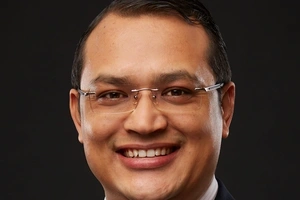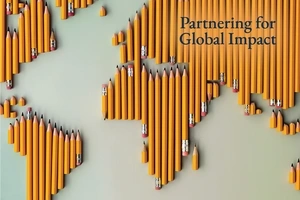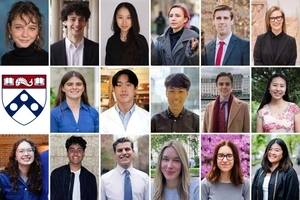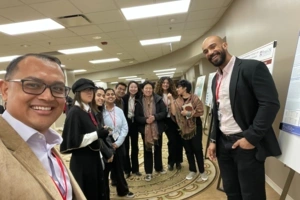By Megan Goff
As an applied developmental psychologist, Associate Professor Sharon Wolf’s career has focused on examining the links between poverty, social policies, education, and child development, most recently in West Africa. Never has the convergence of these issues been more apparent than in the wake of the global COVID-19 pandemic, which profoundly affected educational systems worldwide, especially in the developing nations where Wolf has been conducting research.
Now, Wolf is partnering on two critical studies with Innovations for Poverty Action, an international nonprofit, and the ministries of education in Ghana and Côte d’Ivoire. One explores the role of parental involvement in their child’s education, and the other examines the interplay between household economic hardship and school quality in shaping children’s development. Both seek to address the same underlying issue: how children’s early educational experience affects their learning and development, and how policies, programs, and other interventions can improve these experiences.
We spoke with Wolf about the potential implications of her Jacobs Foundation-funded work, the evolving role of parents and families in the educational experience, and her take on what we can all learn from today’s changing educational landscape.
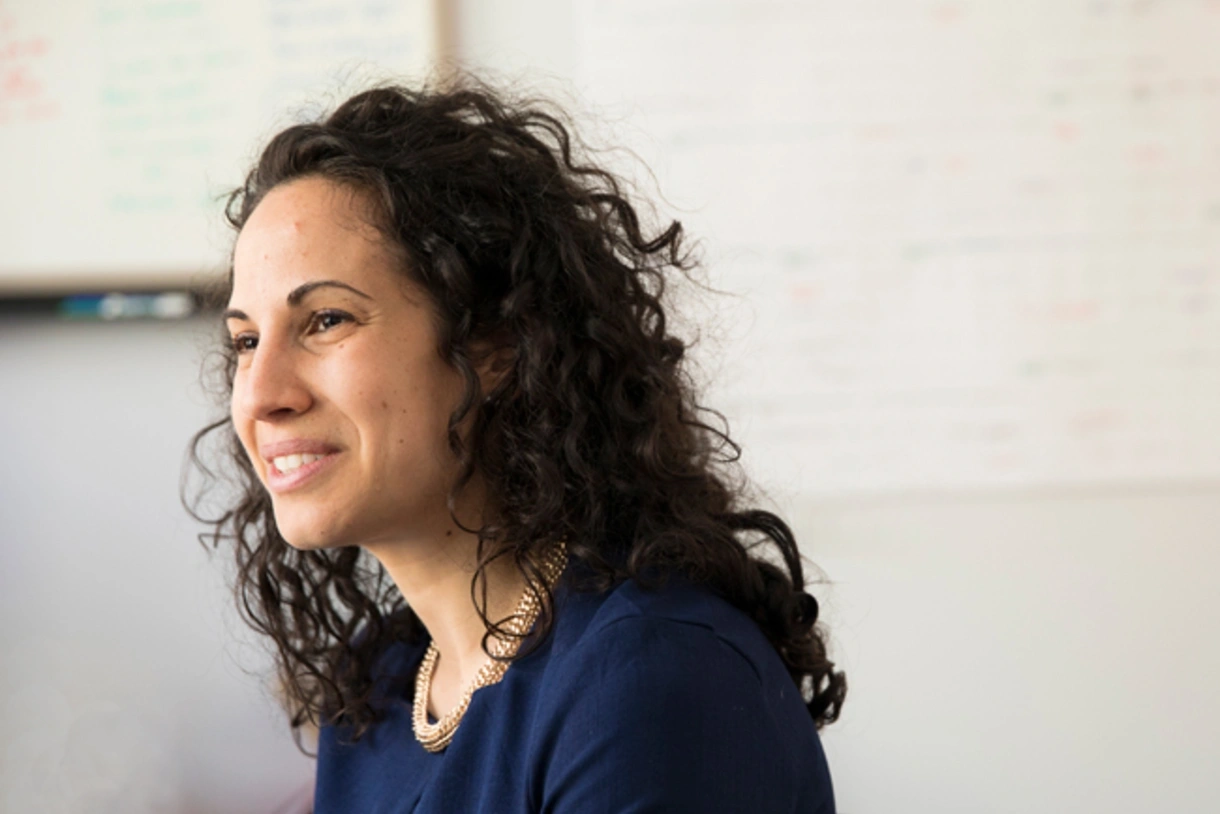
Q: Your work looks at the many factors, including parental involvement and the COVID-19 pandemic, that impact child learning outcomes. How has that research continued or evolved through your recent work with the Jacobs Foundation?
A: Prior to this study, I had been doing some work on parent engagement in early childhood education, and we got some puzzling findings where engaging parents actually made things worse for kids. It opened our eyes to the fact that we need to think about what parents’ preferences are. When we think about engaging them and designing interventions for them, we need to think, “What are the different barriers to engagement they’re facing in their day-to-day lives?”
When schools were closed during the pandemic, parents became responsible for engaging students through remote learning. So, we adapted a text-message-based intervention we used in Côte d’Ivoire that was designed to support parent engagement.
We found that the results were largely reliant on the education level of the parents. For parents who had some years of formal schooling, we recorded improvements to engagement and to children’s social and emotional development. For those parents who had no formal schooling, engagement and self-efficacy declined. Those parents felt they were being told they weren’t doing the right things. It reduced confidence and engagement because they didn’t feel like they could help their children. Now, we’re hoping to take what we’ve learned and engage directly with parents to understand from them what they feel they are doing well and how they see their role in their child’s education.
Q: And what did you learn from your research in Côte d’Ivoire?
A: This project is examining the role that child labor plays in education. Côte d’Ivoire is home to many rural cocoa farming communities, and, for these farmers, it’s a family affair. Everyone helps harvest the beans, which means kids are balancing farm work with attending school.
We have developed a project with the Ministry of Education where we bring in two different approaches: the first approach being direct cash transfers to families, and the second being educational quality improvement through Teaching at the Right Level in schools, an instruction method designed to help children develop basic reading and mathematics skills by dividing them into groups based on learning needs, rather than age or grade. It’s an ambitious study; there haven’t been any studies which have looked at the multiple approaches together to address the root cause of child labor and poor learning outcomes.
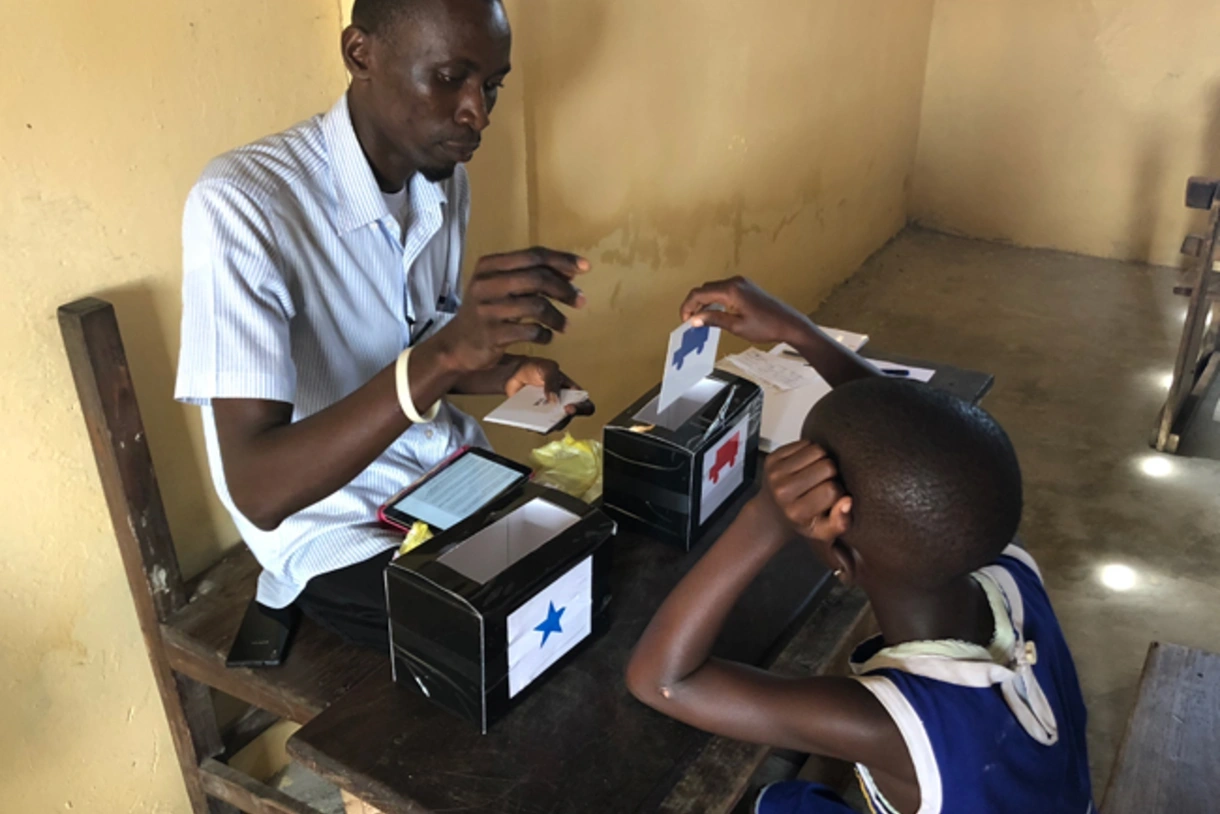
Q: What inspires your work? Why is this an area you’re so passionate about?
A: For a long time, I focused mostly on early childhood education, driven by interests due to personal experience. We immigrated to the United States from Israel when I was three years old, and I immediately was enrolled in preschool. It was a big transition, but I was in a really wonderful environment, and it impacted everything—my adjustment, my ability to feel safe and cared for in this new country. I was really drawn to the role that teachers could play in that.
I stumbled into the work of parents because it was a priority area for the Ghanaian government, who I partnered with for several years. I was struck by what a powerful role parents can play in shaping education systems. It led me to want to learn more about the relationship between parents and teachers—and then, with the pandemic, parents became, in many cases, the sole adults shaping children’s educational experiences. It got me more interested in how we can support them directly.
Q: What do you want to explore next in your research?
A: A lot of parenting programs are designed to try to get parents to do different things without addressing the economic and social constraints on them—just asking parents to engage more with their kids, or to talk more to their kids without taking into account that they’re not home often because they’re working, or those kinds of factors.
I am excited to see, when we actually let people do what they feel is best, but also try to address those constraints—like poverty—do we see changes in parenting practices? If school quality also improves, do parents see that? Without talking to parents about education, if we address those more structural issues, does their behavior change? And how does that compare to when we just try to change parenting behaviors without addressing the constraints. Taking a more systemic approach—targeting the inequalities and challenges that pose so much pressure and difficulty on families—as opposed to just working at the family level, that’s another area of work I’d like to explore.
This article appeared in the Fall 2022 issue of The Penn GSE Magazine.
Media Inquiries
Penn GSE Communications is here to help reporters connect with the education experts they need.



